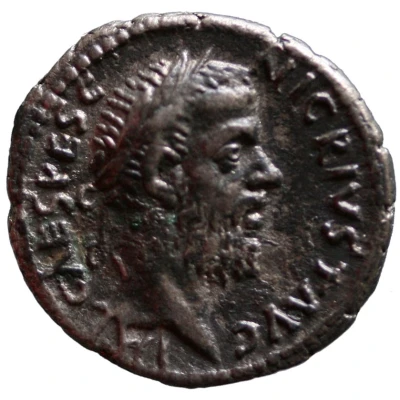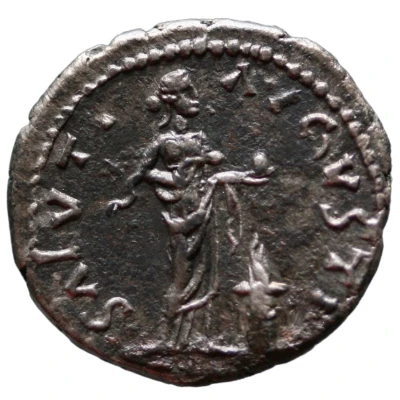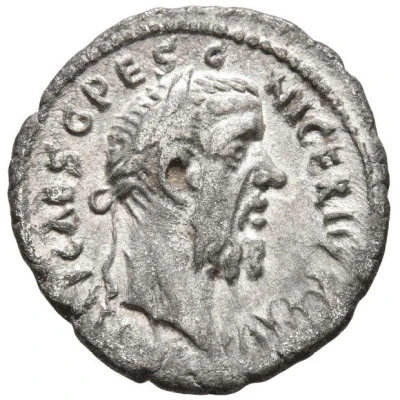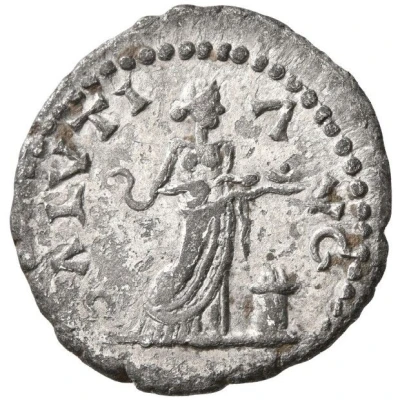


Denarius - Pescennius Niger SALVTI AVGVS; Salus
| Silver | 2.6 g | 19 mm |
| Issuer | Usurpations of Syria (Roman Imperial usurpations) |
|---|---|
| Ruling authority | Pescennius Niger (193-194) |
| Type | Standard circulation coin |
| Years | 193-194 |
| Value | Denarius (1) |
| Currency | Denarius, Reform of Augustus (27 BC – AD 215) |
| Composition | Silver |
| Weight | 2.6 g |
| Diameter | 19 mm |
| Shape | Round (irregular) |
| Technique | Hammered |
| Demonetized | Yes |
| Updated | 2024-10-10 |
| Numista | N#271335 |
|---|---|
| Rarity index | 100% |
Reverse
Salus, draped, standing right at altar, feeding from patera in right hand snake held in her arms.
Script: Latin
Lettering: SALVTI AVGVS
Unabridged legend: Saluti Augusti
Translation: To the health of the emperor (Augustus).
Comment
From Commodus to the Severans
Marcus Aurelius' elevation of his own son Commodus to Augustus in 177 AD proved to be a mistake. His reign from 180-192 ended with the assassination of Commodus and plunged the country into civil war. The provincial governor of Pannonia Septimius Severus (193-211) was able to assert himself. The rulers who followed him, starting with his son Caracalla (211-217), Elagabalus (218-222), who had to assert himself against Macrinus (217/218 AD), through to Severus Alexander (222-235), legitimised themselves with reference to their Severan origins.
Interesting fact
One interesting fact about this coin is that it was minted during the reign of Pescennius Niger, who was a usurper of the Roman Empire and ruled for a brief period of time (193-194 AD) before being defeated by Septimius Severus. Despite his short reign, Niger's coins are still widely studied and collected by numismatists today, providing valuable insights into the political and economic conditions of the Roman Empire during that time.

